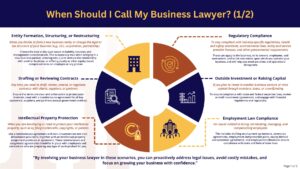When and how to register a foreign company in the US
In the prior post in this series, we discussed U.S. banking requirements for international companies. This post focuses on when a foreign company should or must register as doing business in a U.S. state, either by registering their foreign company directly in that state or by forming an affiliate or subsidiary company in that state.
Other than registration with the U.S. Internal Revenue Service (“IRS”) to fulfill U.S. tax obligations, there is no federal business registration in the U.S. because registration is done at the state level. The criteria for whether you need to register in a U.S. state depends on the laws of each state regarding when a business is considered to be “doing business” in that state. This determination is independent from whether you owe income tax or another tax based on your U.S. sales in a state, as we will discuss in a future post regarding U.S. federal and state taxation requirements.
For instance, in Washington, California, and New Jersey, only selling products through a broker or maintaining a bank account at a financial institution is not enough to require registration in those states. But doing anything more than maintaining a bank account, selling product through a broker, or doing other minimal business activities requires registration in those states:
| State | Registration Required | Comments |
| Washington (WA) | Yes | If leasing warehouse space, storing product, or repackaging product in WA |
| California (CA) | Yes | If leasing warehouse space, storing product, or repackaging product in CA |
| New Jersey (NJ) | Yes | If leasing warehouse space, storing product, or repackaging product in NJ |
Each international company will need to analyze each part of their U.S. operations to determine whether they need to register to do business in any states.
If, for example, you leased warehouse space and stored all of your west coast product in Washington and shipped it into California after the sale, then you would not need to register in California. The reverse would also be true if you stored all of your west coast product in California and shipped to Washington.
But if you would need to retool your CA and WA logistics to make this happen, that would probably cost you more in the long run (via shipping delays and other issues) than registering in each state where you lease warehouse space or store product.
Companies that engage primarily in service-based operations should pay attention to triggering activities such as entering into a lease for office space, engaging employees, or sending employees into the state to conduct business operations.
Often the criteria that a state’s taxation bureau applies regarding your income and sales tax obligations is different than the criteria that is applied by its department of commerce or secretary of state regarding whether the business needs to be registered.
The cost for initial state registration varies from approximately US $100-$300, and annual compliance with each state varies from a few hundred dollars to tens of thousands of dollars. The latter extreme expense can happen in Delaware, so be very careful when setting up a Delaware entity so you can ensure you minimize your annual franchise tax payment (Delaware’s version of an annual company maintenance fee).
Generally, nonpayment of taxes is significantly more serious than nonregistration of a business entity due to significant penalties that can and will be assessed against business owners (not just against the nonpaying businesses), but it is important to comply with both registration and taxation requirements.
Lastly, if you are a non-U.S. citizen and have any plans on entering the U.S. for business purposes, you should consult with an immigration attorney before you come or send any of your personnel to the U.S.

























